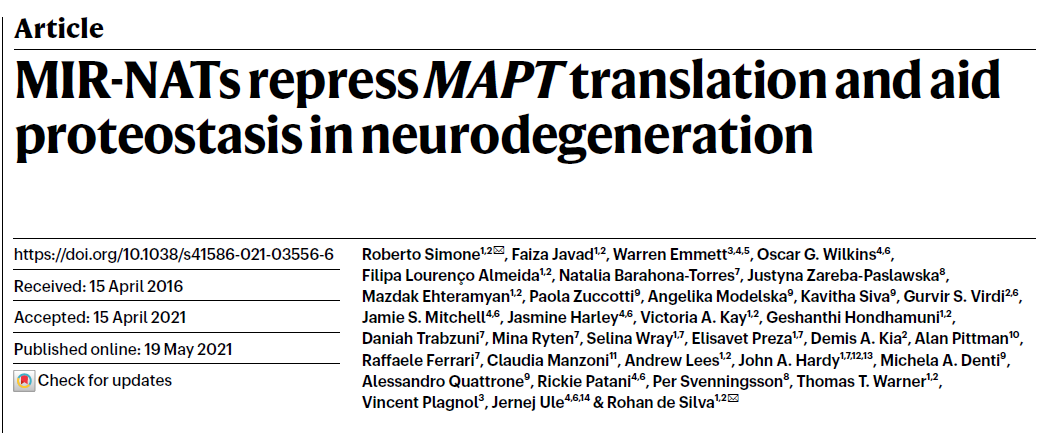Per Svenningsson is now a board member of the editorial team for Molecular Psychiatry. Visit the following link to see all members: https://www.nature.com/mp/editors/editorial-board
Grant from the Aligning Science Across Parkinson’s (ASAP) initiative
Per Svenningsson has been awarded a grant of approximately 1.86 million US dollar for three years, from the Aligning Science Across Parkinson’s (ASAP) initiative for an ambitious, multidisciplinary effort to study how abnormal protein aggregates may spread from the gut to the brain to drive the early stages of Parkinson’s disease. The total award is 8.9 million US dollar grant for three years.
https://news.ki.se/ki-researcher-awarded-186-million-us-dollar-for-parkinsons-disease
Nobel Prize in Physiology or Medicine awarded to David Julius and Ardem Patapoutian for their discoveries of receptors for temperature and touch
As a member of the Nobel Committee, Per Svenningsson was very actively involved with this year’s Nobel Prize in Physiology or Medicine.
Our research on how ketamine prevents depression was published on Molecular Psychiatry

The discovery that the anaesthetic ketamine can help people with severe depression has raised hopes of finding new treatment options for the disease. Researchers at Karolinska Institutet have now identified novel mechanistic insights how the drug exerts its antidepressant effect. The findings have been published in the journal Molecular Psychiatry.
https://news.ki.se/new-findings-on-how-ketamine-prevents-depression
Article published in Molecular Psychiatry
Ji-Seon Seo et al. found that p11 is highly expressed in ependymal cells, and is significantly decreased in patients with MDD, and in two mouse models of depression induced by chronic stress. These results identify a new role and a key molecular determinant for ependymal cell-driven CSF flow in mood disorders.
Funding from Nordtjernan Holding AB and the Axel Johnson Group
Professor Per Svenningsson from Karolinska Institutet receives funding for a five-year research project of SEK 38 million from Nordstjernan Holding AB and the Axel Johnson Group.
Read KI press release
Article published in Biological Psychiatry and featured with commentary and issue cover.
Mantas et al. found that tyramine and TAAR1 may play a critical role in the behavioral, transcriptional, and neurochemical effects of monoamine oxidase inhibitors, providing insights into the mechanisms underlying the effects of this class of drugs.
Wallenberg Clinical Scholars prolongation grant
Per Svenningsson was granted an extended Wallenberg Clinical Scholars grant for another five years.
Co-authorship in a Nature article
A full-length article in the journal Nature (co-authored by Justyna Zareba-Paslawska and Per Svenningsson) demonstrates a key role for MAPT-AS1 in tauopathies, such as frontotemporal dementia, progressive supranuclear palsy and corticobasal degeneration. (study funded by CBD Solutions). Read article here
Funding from the Arvid Carlsson foundation
From the article in “Läkartidning” (read original article here):
The Arvid Carlsson Foundation has decided to award Professor Per Svenningsson at Karolinska Institutet the foundation’s grand prize for outstanding research in the spirit of Arvid Carlsson. Per Svenningsson was rewarded for his innovative integrated animal experimental and clinical studies regarding Parkinson’s disease and depression. The prize consists of a diploma and a research grant of SEK 700,000.



